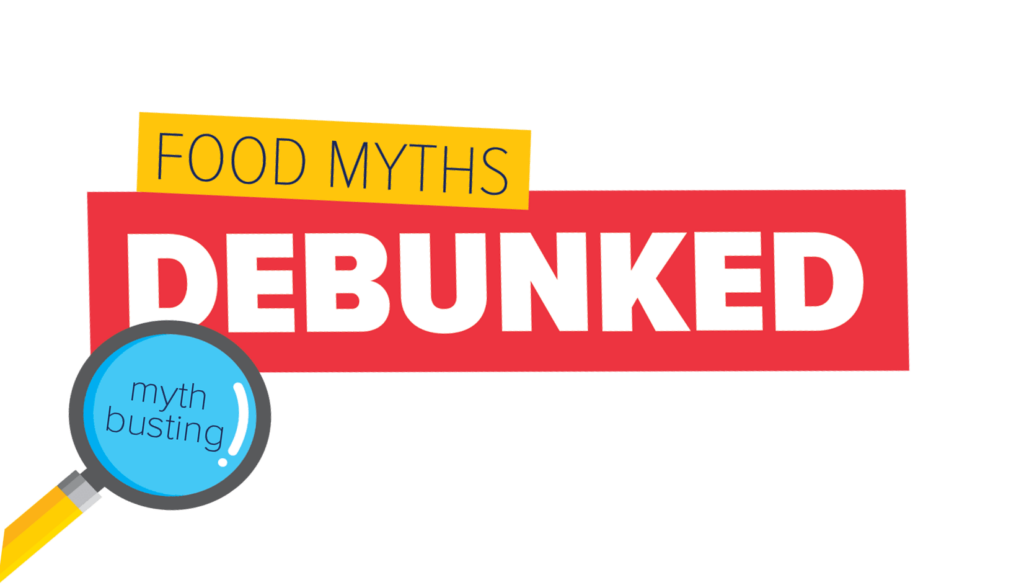Food myths debunked

For your health

Susan Friedman, MD, MPH
A well-balanced diet provides essential vitamins and nutrients, helping us stay strong and healthy, preventing diet-related illness, and contributing to our overall well-being. Knowing what food choices to make can be overwhelming though, especially with so much information available. To help with this, Susan Friedman, MD, MPH, the director of Highland Hospital’s Lifestyle Medicine program, provides valuable guidance on how to distinguish food myths from facts and offers suggestions to optimize your nutritional intake.
For your health
A well-balanced diet provides essential vitamins and nutrients, helping us stay strong and healthy, preventing diet-related illness, and contributing to our overall well-being. Knowing what food choices to make can be overwhelming though, especially with so much information available. To help with this, Susan Friedman, MD, MPH, the director of Highland Hospital’s Lifestyle Medicine program, provides valuable guidance on how to distinguish food myths from facts and offers suggestions to optimize your nutritional intake.
Myth: Carbohydrates are bad.
Answer: FALSE
Not all carbohydrates are created equal, and not all of them are detrimental to your health. Says Friedman, “Carbohydrates are the primary fuel source that we have evolved to use and they are crucial sources of energy. Unfortunately, we have lumped all carbohydrates into one category, but there is a big difference between an apple and an apple danish, a potato and French fries, and a bowl of oatmeal and a bowl of Cocoa Puffs. The disparity lies in the processing, which often removes fiber and other beneficial nutrients and adds potentially harmful elements such as sugar, fat, and salt.” The quality of carbohydrates consumed is more important than the amount, too, so the next time you prepare your favorite pasta dish, consider using whole wheat pasta, or opt for an orange instead of a glass of orange juice in the morning.
between an apple and an apple danish, a potato and French fries, and a bowl of oatmeal and a bowl of Cocoa Puffs. The disparity lies in the processing, which often removes fiber and other beneficial nutrients and adds potentially harmful elements such as sugar, fat, and salt.” The quality of carbohydrates consumed is more important than the amount, too, so the next time you prepare your favorite pasta dish, consider using whole wheat pasta, or opt for an orange instead of a glass of orange juice in the morning.
Myth: You can’t have too much protein.

Answer: FALSE
Our society focuses a lot on building muscle, which is often connected to consuming protein.
While protein is certainly a key factor in a healthy diet, daily protein needs are less than the media portrays. In fact, too much protein can be harmful. “There’s a big focus in this country on protein but having a diet that is too protein-heavy is a risk factor for cancer and heart disease and can shorten one’s lifespan,” Friedman says. “We need to have protein in our diet, but we need to right-size it.” The bottom line is that all whole foods have protein, and if you eat a well-balanced diet that focuses on vegetables, legumes, whole grains, and fruit, you will get enough protein.
Myth: Beans are among the healthiest foods you can eat.
Answer: TRUE
It’s important not to underestimate the benefits of legumes. These foods, including lentils, peas, and beans of various colors and shapes, are rich in fiber, protein, and nutrients. Consuming beans and other legumes can significantly contribute to disease prevention as they help regulate blood sugar, reduce  cholesterol, and enhance digestion. They also make an excellent alternative to meat and can be easily incorporated into many dishes.
cholesterol, and enhance digestion. They also make an excellent alternative to meat and can be easily incorporated into many dishes.
Myth: You need milk for strong bones.

Answer: FALSE
If you don’t eat dairy, there are many other options for sources of absorbable calcium. Friedman recommends kale, broccoli, bok choy, soybeans, mustard greens, turnip greens, collard greens, and fortified plant milks. She adds, “You need other nutrients like vitamin C, antioxidants, potassium, magnesium, and vitamin K for bone health. So, eat a variety of fruits and vegetables to stock up on these components.”
Myth: Most of us need more fiber in our diets.

Answer: TRUE
When in doubt, add fiber to your plate. Fiber is key for gut health and cholesterol management, Friedman notes. While the American Heart Association recommends eating 25 to 30 grams of fiber daily, most people in the United States don’t consume nearly enough of it. Fiber-rich foods include beans, nuts, berries, and almost anything that can be pulled from the ground. So get your gardens going—a fiber-rich diet has been shown to help prevent chronic illness and improve longevity.
Myth: Eating healthy is expensive.
Answer: FALSE
The staples of a healthy diet—whole grains, beans, and root vegetables—are inexpensive.
To optimize your diet, Friedman suggests purchasing foods without labels, such as fresh fruits and vegetables. Consider visiting a local farmer’s market for lower-priced and fresher products than typical grocery stores. Frozen fruit and vegetables are also an inexpensive option; they are picked at the peak of ripeness, so they are chock-full of vitamins and other nutrients. You can buy them in larger quantities, too, and not worry they’ll go bad before you eat them. Before  shopping, make a list of necessary ingredients for planned meals to avoid impulsive purchases or extra trips to the store. Additionally, oatmeal bars, fruit cups packed in water or 100 percent fruit juice, and low-cost snacks with minimal added sugar, salt, fat, or chemicals can be excellent pantry staples. Look for the term “whole” on packaging, indicating the use of whole grains that are particularly beneficial for regulating cholesterol.
shopping, make a list of necessary ingredients for planned meals to avoid impulsive purchases or extra trips to the store. Additionally, oatmeal bars, fruit cups packed in water or 100 percent fruit juice, and low-cost snacks with minimal added sugar, salt, fat, or chemicals can be excellent pantry staples. Look for the term “whole” on packaging, indicating the use of whole grains that are particularly beneficial for regulating cholesterol.
Find out more about Highland Hospital’s Lifestyle Medicine program.
This story also appears in the summer 2023 issue of Buzz magazine.
— Sydney Burrows, June 2023


